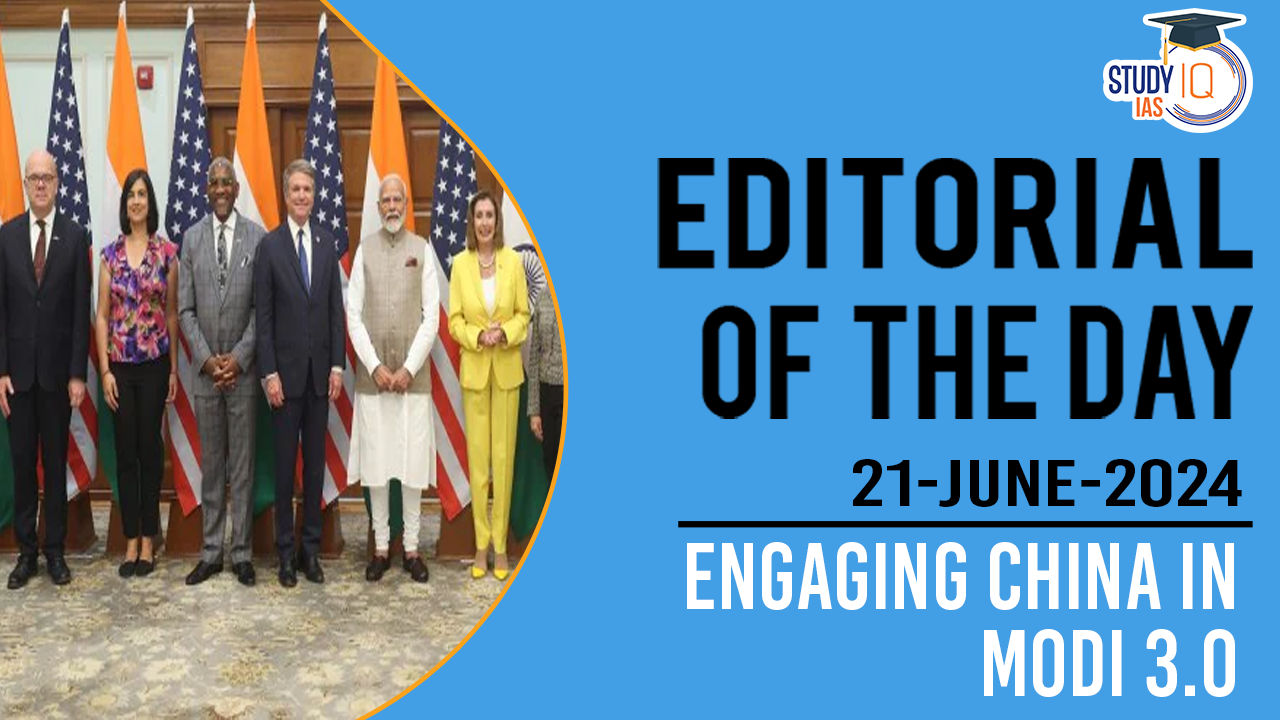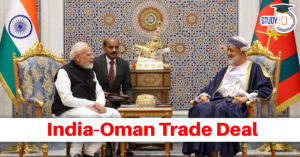Table of Contents
Context
- It has been four years since the Galwan clashes of June 15, 2020, which significantly impacted India-China relations.
- The border standoff remains unresolved, with 50,000 to 60,000 troops still deployed on each side.
- Managing relations with China is a primary challenge for the government in its third term.
Background
- Prime Minister Modi and China’s President Xi Jinping are expected to attend the upcoming Shanghai Cooperation Organisation (SCO) summit in Astana, Kazakhstan.
- It is uncertain if a meeting between the two leaders will occur and if it will lead to any breakthroughs.
Developments Leading to the Summit
- The PM emphasised the importance of India-China relations and the need to address the prolonged border situation to normalise bilateral interactions.
- He expressed hope for peaceful relations benefiting not only India and China but the entire region and world.
- Chinese Reaction:
- The Chinese foreign ministry acknowledged the broader context of India-China relations beyond the boundary issue.
- China emphasised the importance of strategic dialogue and cooperation to maintain a stable relationship.
- The External Affairs Minister highlighted the hope for resolving issues related to “patrolling rights” and “patrolling abilities.”
- This was seen as a nuanced shift from earlier stances on “disengagement” and “de-escalation.”
Complications and Tensions
- India-Taiwan Interaction:
- An exchange on social media between PM Modi and Taiwan’s President Lai Ching-te, congratulating Modi on his re-election, angered China.
- China protested any official interactions between India and Taiwan, emphasising adherence to the ‘One China’ policy.
- US Delegation’s Visit to Dalai Lama:
- A seven-member bipartisan US Congressional delegation met the Dalai Lama in Dharamsala, prompting sharp reactions from China.
- S delegation asserted the Dalai Lama’s enduring legacy, contrasting it with President Xi’s transient political tenure.
- US Legislation on Tibet:
- The US House of Representatives passed the Promoting a Resolution to the Tibet-China Dispute Act, following Pelosi’s ignored warnings from Beijing during her Taiwan visit in August 2022.
Strategic and Economic Implications
India’s Stance:
- Despite showing intent to resolve border issues, India’s strategic moves, like Pelosi’s visit to the Dalai Lama, signal a complex diplomatic approach.
- The weaker-than-expected mandate for the NDA in the Lok Sabha election has influenced the government’s cautious stance on reconciliation with China.
Economic Considerations:
- Stable borders are crucial for the government to focus on economic growth, especially after election results highlighted issues like job shortages and rising prices.
- India-China economic ties have remained strong, with bilateral trade reaching a record $136 billion in 2023, despite ongoing security concerns and efforts to decouple from China.
Australia-China Relations as a Model
Australia’s Example:
- Australia’s approach under Prime Minister Anthony Albanese involves high-level engagement with China while protecting core interests.
- The recent visit by Chinese Premier Li Qiang to Australia demonstrated efforts to manage differences and disagreements effectively.
Comparison with India:
- The possibility of adopting a similar model exists for India, but it depends on various factors, including President Xi’s political will.
Conclusion
- Previous meetings between Modi and Xi, such as during the G20 in Bali (November 2022) and the BRICS summit in South Africa (August 2023), did not yield positive outcomes.
- Bilateral ties remain strained due to the border dispute, and while economic relations persist, political progress is limited. The Australian model offers some insights, but significant challenges remain for India-China relations.


 Securities Markets Code Bill 2025: Towar...
Securities Markets Code Bill 2025: Towar...
 Weakly Interacting Massive Particles (WI...
Weakly Interacting Massive Particles (WI...
 India–Oman Trade Deal: CEPA Signed to ...
India–Oman Trade Deal: CEPA Signed to ...

























